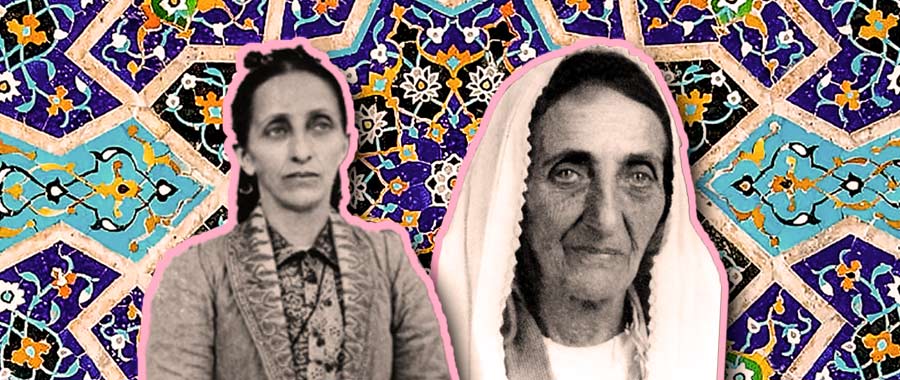In the realm of Bahá’í teachings, few concepts resonate as profoundly as patience and perseverance, particularly in the face of great peril. These virtues are not merely abstract ideals; they serve as fundamental pillars that support individuals during trials and tribulations. The story of Bahiyyih Khanum exemplifies these principles beautifully, showcasing a journey marked by unwavering fortitude amid adversity. This exploration delves into the multidimensional aspects of patience and perseverance, drawing from Bahá’í teachings while examining their implications and applications in the modern world.
To commence, it is essential to understand patience within a Bahá’í context. Patience transcends mere passivity; it embodies a proactive stance of equanimity in the face of challenges. This steadfastness often requires individuals to exercise discipline and self-control, cultivating an inner resilience that shields them from despair. In tumultuous times, the Bahá’í perspective encourages individuals to view adversity as an opportunity for growth, inviting reflection on personal and collective development. By anchoring oneself in patience, the believer achieves a semblance of tranquility, which enables a clearer understanding of the obstacles at hand.
Moreover, perseverance is posited as the actionable counterpart to patience. It signifies a relentless commitment to one’s objectives despite obstacles and discouragements. In the teachings of Bahá’u’lláh, perseverance is often illustrated as a spiritual virtue that not only aids individuals in overcoming personal challenges but also inspires their communities. The notion of steadfast endurance in pursuit of truth and justice is intertwined with the belief that every trial faced contributes to the collective advancement of humanity. For Bahá’ís, this commitment means remaining steadfast in service to others, even when faced with overwhelming opposition.
The narrative of Bahiyyih Khanum, the daughter of Bahá’u’lláh, provides a poignant illustration of these concepts. Her life was fraught with challenges, not least of which was the persecution faced by her family and followers. Rather than succumbing to despair, Bahiyyih exemplified remarkable patience and steadfastness. Her ability to remain poised and resolute in the face of adversity serves as a testament to the power of these virtues. By drawing on her experiences, individuals are encouraged to understand that the cultivation of patience can transform challenges into avenues for profound personal and spiritual development.
In contemporary society, the principles of patience and perseverance are equally relevant. The frenetic pace of modern life often incites frustration and impulsiveness, undermining the practice of patience. Yet, in an era where instant gratification is the norm, the Bahá’í teachings remind us of the intrinsic value of waiting—not simply for external circumstances to change, but for internal growth to occur. Cultivating patience in this context involves developing mindfulness and an appreciation for the unfolding of time. This is crucial for fostering a deeper connection to oneself and to others in a rapidly changing world.
Perseverance, as echoed in Bahá’í philosophy, further underscores the importance of resilience in striving towards one’s goals. In the face of systemic challenges—be they societal, environmental, or personal—Bahá’ís are encouraged to remain steadfast. The collective nature of their faith emphasizes collaboration and communal support, reiterating that perseverance is not a solitary pursuit. Engaging with others fosters a sense of accountability and motivation, propelling individuals to support one another through periods of hardship.
Furthermore, the application of these principles extends beyond personal struggle and touches on societal progress. The Bahá’í teachings advocate for the elimination of prejudice, the promotion of gender equality, and the pursuit of social justice as fundamental aspects of human advancement. In the face of societal upheaval, Bahá’ís are called to harness patience in their advocacy efforts, recognizing that change is a gradual process necessitating sustained engagement and dialogue. Perseverance serves as the engine driving this engagement, inspiring individuals to tirelessly pursue justice even when faced with resistance.
Moreover, the intersection of patience and perseverance resonates within the framework of personal development. The practice of setting long-term goals often requires a delicate balance between the two. For instance, aspiring writers or artists may find their journey fraught with rejection and self-doubt. Embracing patience allows them to view feedback as formative elements rather than as detrimental criticism. In tandem, perseverance fuels their motivation to continually refine their craft, underscoring the synergy between these virtues in achieving greatness.
In summation, the Bahá’í teachings on patience and perseverance reveal deep insights applicable to all facets of life. By examining the life of Bahiyyih Khanum, individuals glean not only inspiration but also practical guidance on navigating their own adversities. The duality of these virtues emphasizes that while patience allows for reflection and personal growth, perseverance propels action and societal progress. As the world confronts complex challenges, returning to these teachings offers a pathway to resilient and transformative living, fostering both individual and collective advancement. Ultimately, the integration of patience and perseverance into daily life is not merely an aspiration but a profound necessity for anyone committed to living a principled and purposeful existence.
